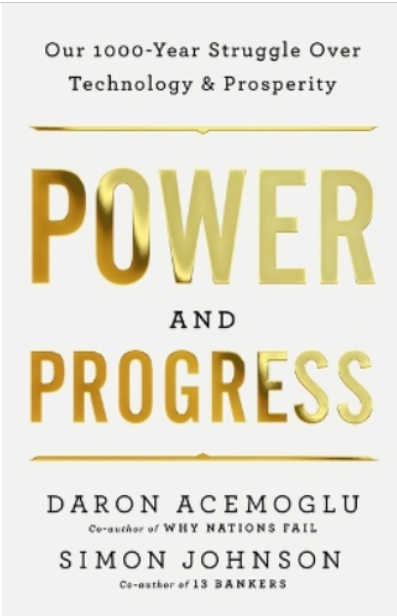Nine Notable Books I Read in 2023
By Don Curren
About this
list, a word of caution/explanation may be in order.
This is
quite different from the “Best Books of 2023” lists that you’ll find in
publications and on the web.
It is not,
like they are, confined to books that came out this year.
Instead, it
reflects the most interesting books I read this year, only a handful of which were published in 2023.
My reasons for books when I do are somewhat idiosyncratic.
Sometimes, I’m responding to something that’s new and is part of popular discourse.
But most of the time, I read things that reflect my long-standing interests, affinities, and research projects, or read or hear about somewhere and happen to pique my interest.
I do have
certain themes that I pursue. Dominant in the last couple of years: an interest
in capitalism and what might come after it, particularly in the context of
climate change; philosophy (mostly, but not exclusively, French poststructuralism
and American pragmatism these days); systematically re-reading the works of Philip
K Dick; exploring the speculative fiction authors who have risen to prominence
in the last 25 years or so that I missed for some reason; the role of icons (in
an extended sense) in modern society.
I read a lot, but nowhere near as steadily and systematically as the author Ted Gioia. Gioia, whose Substack publication shows off his incisive intelligence over a broad range of important subjects, reads an enormous number of books in a very systematic way, as he outlined in this piece.
I do have
long-standing themes, as indicated above, but I get knocked off course easily.
If I read or hear about a book that sounds interesting, say on the invaluable Five Books
site, or from a friend whose taste I respect, it will go right to the top
of my very long “To Read” list.
Great finds
in used bookstores and little libraries can also blow me off course.
In summary,
my reading is eclectic, sometimes erratic, and only tenuously systematic.
So, this list doesn’t even pretend to offer a
thorough assessment of new, popular, or important books for you to read.
Instead, it’s
a sampling from what I happened to read this year.
I find that my
filters, however erratically they are applied, are mostly effective, and I enjoy
almost all the books I read, at some level or another.
Selecting a
reasonably small number to highlight wasn’t easy.
The books I’ve
selected aren’t necessarily the ones I enjoyed the most (although in some
cases, they definitely are).
But they are
the ones that I want to tell you about. Perhaps because I believe they’re
important, potentially interesting to you, in danger of getting lost in the
shuffle – or maybe just because I want to tell you about them.
Here they
are:
Most Notable
Book of the Year: (illustrated above)
Power
and Progress: Our Thousand-Year Struggle Over Technology and Prosperity, by Daron
Acemoglu and Simon Johnson.
The most
important book I read this year was also one of the relatively few I read that
were published in 2023.
It’s
important because it addresses head-on one of the most urgent issues facing us
collectively: the need to wrestle control of the direction of technological progress
out of the hands of billionaires and back into the hands of society as a whole.
It’s eloquently
written, cogently argued, and grounded in centuries of well-researched economic fact.
The rest, in
no particular order.
The Candy House by Jennifer Egan.
Egan remains a perceptive chronicler of the contemporary scene and the impact
of changing technology on our lives, as well as an imaginative and engaging
writer who can touch the emotions deeply.
The Night
Ocean by Paul Le Farge: A fascinating puzzle of a novel that explores the life and world of HP
Lovecraft, the early days of Science Fiction fandom and questions of storytelling,
identity, and the nature of truth in a delightfully enigmatic way.
Empire and Communications by Harold Innis. The Big Bang behind the creation of the McLuhan galaxy, Innis’s 1950 work on communications through history is enthralling, enlightening, and often quite frustrating.
The Anomaly by Herve Le Tellier
– A high concept sci-fi thriller recommended to me be a social-media friend,
Anomaly is both fast-moving, entertaining, and thought provoking. The chapter featuring
Stephen Colbert alone is sharply observed, funny, and ultimately heartbreaking.
Sea of Tranquility, by Emily St. John Mandel – Sea of Tranquility is quietly stunning, a poetic, sci-fi mystery story that
(Spoiler Alert) touches on some of the main themes of The Anomaly, but in a
gentler, more enigmatic way.
The Origin of Capitalism by Mary Eskeins Wood – A trenchant look at theories about the origins of
capitalism from an American/Canadian academic historian that exactingly analyzes
the faults of established theories and proposes a fascinating and convincing
one in their place.
Any Day
Now by Terry Bisson –
A strange and kind of wonderful book; starts out as an elegy to small-town life
in the Mid West, becomes a vivid evocation of the Sixties, and ends as chilling,
prescient prophecy of America’s collapse.
Barnaby Rudge by Charles Dickens - Dickens is such an extraordinary writer that even one of his less successful (and less popular) efforts still outshines many much more recent books. With its harsh critique of a populist movement in 1780s Britain, Barnaby Rudge is surprisingly relevant in ways I hope to explore in another Curren(t) Thinking piece.









Found my way here via a link on bluesky. Interesting list! Added a few items to my "keep this in mind" pile. Thanks!
ReplyDeleteYou're Welcome. Thanks for taking the time to read it.
ReplyDelete